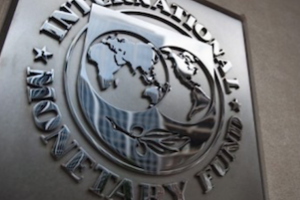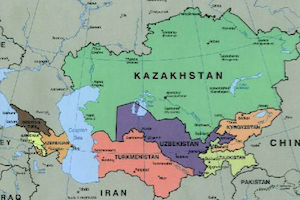25 Years of Promoting Democracy in Central Asia and the Caucacus: How Have We Done?
CACI Forum
Wednesday, Feb. 24, 2016, from 5 to 7 p.m.
The Freedom Support Act of 1992 (Freedom for Russia and Emerging Eurasian Democracies and Open Markets Support Act) made the "promotion of democracy" a main strategic priority of the US in the former republics of the USSR. What specific achievements can the US claim in this sphere in the Caucasus and Central Asia, and what have been its failures? To what extent does the experience of the last quarter century call for revisions in America's tactics in this area? And to what extent, if any, does experience call into question the strategy itself?
Rather than duel over the number of successes and failures, our speakers will focus on steps that might improve the effectiveness of actions to advance this strategic goal or, if necessary, more fundamental changes in the strategy itself.
The recorded version of this seminar is now available to view on the SAIS events Youtube channel.
Speakers:
Laura Jewett, Regional Director, Eurasia Programs, National Democratic Institute (NDI)
Stephen Nix, Regional Director, Eurasia, International Republican Institute (IRI)
David Kramer, Sr. Director for Human Rights and Democracy, McCain Institute for International Leadership
Moderator: S. Frederick Starr, Chairman, Central Asia-Caucasus Institute
Rome Building Auditorium
SAIS - Johns Hopkins University
1619 Massachusetts Ave., NW
Washington, DC 20036
Click here to RSVP and register
CANCELLED: Paul Goble on the Future of Post-Soviet Countries, with a Special Ceremony: "A Salute to Paul Goble"
CACI Forum with the Jamestown Foundation
We have learned from Paul Goble that he has experienced medical complications and has therefore been admitted to the hospital for observation. Because of this, he will not be able to travel to Washington for the Forum and associated events on Monday.
CACI will reschedule the Forum as soon as we receive an "all clear" from Paul Goble.
Meanwhile, his many friends send him warm wishes for a quick return to his normal routine.
IMF Economic Outlook for Caucasus and Central Asia: Reforms Needed to Weather Shocks from Commodity Prices and Russia

IMF Economic Outlook for Caucasus and Central Asia: Reforms Needed to Weather Shocks from Commodity Prices and Russia
Wednesday, Dec. 2, 2015, from 5 to 7 p.m.
(reception at 5 p.m. with Georgian wine, followed by the main program at 5:30)
This event can be viewed on the SAIS events channel.
SPEAKERS:
Juha Kähkönen
Deputy Director, Middle East and Central Asia Department, IMF
Edward Gemayel
Mission Chief, Kyrgyz Republic, IMF
MODERATOR: S. Frederick Starr, Chairman, Central Asia-Caucasus Institute
Rome Building Auditorium
SAIS - Johns Hopkins University
1619 Massachusetts Ave., NW
Washington, DC 20036
Click here to RSVP and register
A Strategic Conflict Analysis of the South Caucasus (With a Focus on Georgia)
By Svante E. Cornell, Niklas L.P. Swanström, Anara Tabyshalieva, Georgi Tcheishvili
Rethinking Central Eurasia
Rethinking Central Eurasia
118p. Central Asia-Caucasus Institute & Silk Road Studies Program, 2010
By Eldar Ismailov & Vladimer Papava



